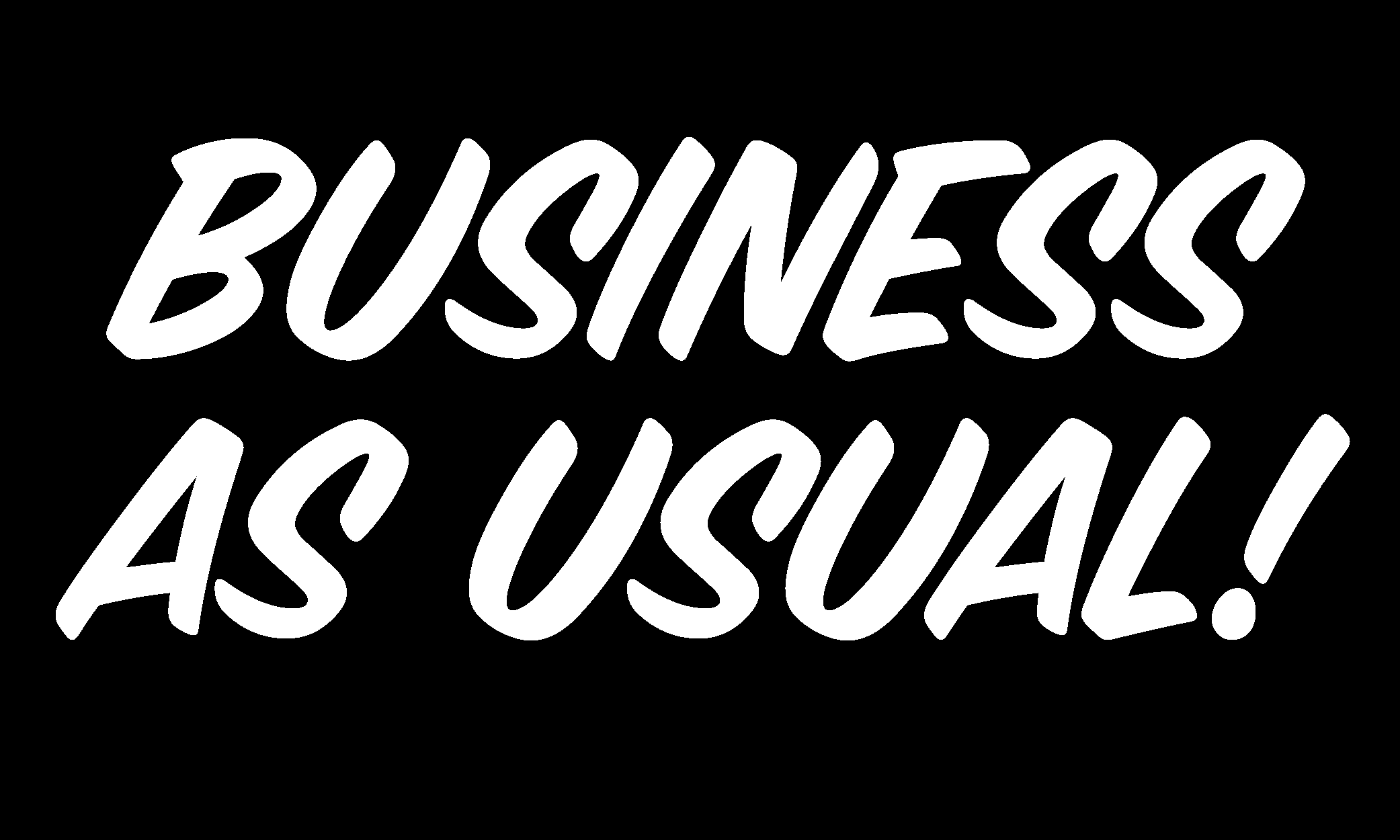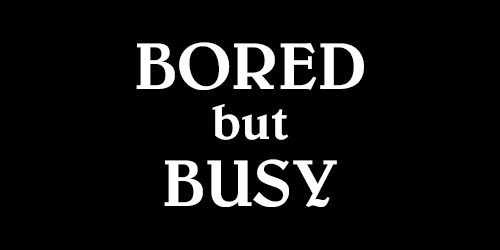In relation to my recent article: Aesthetics of Boredom in times of Corona, in which I analyse the digital behaviours created by the Corona-related informational abundance on social media platforms, myself and Jess Henderson decided that it is perfect timing to mark what would be the most crucial interview in the history of digital Corona crisis.
My colleague here at INC is Jess Henderson, author of Offline Matters, and a founder of Outsider: a theoretical practice expanding the consideration of offline culture and communication. I’ve been subscribed to Outsider‘s newsletter for two years now, and the topics which Jess writes about are, well, life-containing. Smooth, funny and critical-to-inspire style of writing, charmed the souls of many. Why is it a good time to get to know Outsider? We can all agree that times as critical as Corona, don’t produce much inspiring online content. Burdened by media news, institutional live streams and competition of our digital selves, it is hard to see this crisis as a thriving opportunity. The question we are pondering over is: How to do nothing that hasn’t been capitalized yet? Without the aim to answer this question fully, there is a hopeful attempt to put a spotlight on the alternatives.
M: Jess, the digital audience and I are so happy to have you here in our digital studio. I want to start talking about the core of Outsider. Which darkness did the idea shine from, and what urged you to engage yourself in a writing practice?
JH: Thanks Maisa. I am pleased to be embarking on being this side of the interview with you. Outsider began in 2017, when I was working in a creative agency (read: advertising agency). It was born out of multiple frustrations. The first was the dominance of digital solutions over the so-called ‘creativity’. This meant that the answer to every question was “we need a social media strategy!”, before the questions were even uttered. I am personally digital profile-avert. They make me uncomfortable and I do not engage with platforms designed to distract – I barely find enough time in the day to do all I want to do, so anything that may rob me of my time gives me the creeps! But more so, I did not agree that these solutions were as magical as they were perceived to be. I thought they were boring and uninventive. It felt like there was a gaping hole where offline alternatives could stand, a hole that I felt I was the only one able to see. An outsider in the field.
This produced the second frustration; “am I the only one seeing this?” A real emperor’s-new-clothes-type situation. It wasn’t only imposed on us lowly creatives from our bosses above, I noticed it in my colleagues too. The same people studying books titled “Digital Minimalism” in their private lives were proposing online-only solutions in the office. It was weird.
Amongst these two, other frustrations were festering; that only ‘qualified’ people were allowed into the supposedly ‘transgressive’ realm of creativity-as-work, that overwork culture was so pervasive it was a sign of status, and that life was boiling down to little more than work/eat/sleep/repeat – social connections, meeting strangers, and general appreciation for oddity, strangeness or ambiguity was out.
These factors all collided into divulging opinions, penned as an outsider on the inside.
JH: Now I understand why Outsider preaches offline practices, even though the project itself is very much rooted in the digital. I am aware that your book is coming out soon, and besides the book format: could you imagine Outsider to exist in a different physical form which is independent from the internet?
JH: Outsider has sought to experiment with ‘offline’ activities from the outset. I wanted to explore these ideas I was proposing. Whether it was screening a film denied by the local film festival in a strip club, or trying out ways of breaking ‘creative habits’ using sound baths, it was always important to try getting strangers into a space together. I’ve also run the No Choice Bookshop over the years, where readers can write in requesting an unchosen book for free (only paying its postage) and I would send it to them, or the Outsider Pen Pal Service, which sets up two people who don’t know each other into a pen pal exchange. These were some of the forms that sought to recentre the offline, though using the online was used as a tool in these too.
M: Which tools/devices do you use to collect all the content for Outsider?
JH: Great question. The ideas I just dreamt up in my mind. The critiques of tech-determinism in creative work obviously came from the office. When I’m out on the street I’m making notes and taking photos, many of which can be seen in the Outsider mails (for example, each mail’s header image is usually something I snapped while out on my feet). I spend a lot of time out on the streets. Even the books used in the No Choice Bookshop came from free street ‘libraries’ (book exchanges) where I would trade-in my unwanted books for ones I deemed potentially interesting to a reader. My life is very low cost so I go around markets at the end of the day picking up discarded vegetables – and generally klepto-ing flyers, stickers, all the objects of spirited IRL culture. I’m out and about (alone) a lot.

M: As creative workers, we are all doomed to spend a lot of time on graphic design and the representation of an idea. Outsider is not an exception to this mantra. In order to charm the readers into a continuous reading of Outsider, graphic design delivery seems to be an important part of the project. How much time do you spend on the aesthetics labour?
JH: I am flattered you find the design charming. I am totally self-taught, skills learnt through necessity, which I think you can see and feel in Outsider. Perhaps that is part of the charm. Although I am not a designer, I work alongside designers and many of my friends are designers by profession, so it certainly rubs off that how something looks is a huge part of its appeal. And magnetism. DIY culture and live music are two things I love, so much of what informs Outsider’s aesthetic is the ‘garage’ music and post-punk energies that I personally have a taste for. Outsider’s look came out naturally in the style of my personal likings. I don’t spend much time thinking about it nor making it. I do the bare minimum and prefer to spend as little time as possible on it. Fortunately, the aesthetics I like and transferred into Outsider are quick and easy – ⌘I (invert) a photo and it’s Outsider-ised!
M: Gaining skills through necessity is exactly the attitude which I deeply appreciate about Outsider. You have a lot of subscribers, which resulted in some consulting gigs as well. What are your tricks for engaging the audience and making sure that they continue reading Outsider’s content?
JH: I wouldn’t say tricks more as refusal to do what everyone else is doing. ‘When everyone else zigs, zag.’ It’s not a deliberate rebellion per se. It’s just the simple reason you start your own thing, is to do it your way. I am grateful that in refusing to conform and in experimenting with other ways, a by-product was attraction. As Mark Fisher taught us “Nothing goes down better on MTV than a protest against MTV”!.
I don’t mind if readers continue to read or not. The unanticipated loyalty came more from a feeling of commonality, that somebody else is experiencing what I am experiencing, which is how Outsider has come to hold a fond place in many people’s hearts. Outsider isn’t just me, it’s all of us.
A friend recently told me that this is why Outsider can speak firmly and ‘give the cold shower’ while still being a figure of solidarity. Because it’s not the voice of one person, it’s the voice of the precarious worker body at large. This blows me away and is why Outsider has a political power I was late to recognise.
M: Due to your travelling lifestyle, Outsider has a voice from many cities: Amsterdam, LA, Berlin, Zurich (which other cities am I missing?). While I think that the infosphere doesn’t change much wherever we go (especially in Europe), I’d be curious to know if these cities influenced the content of Outsider? If yes, how and to what extent?
JH: It wasn’t until I went to the US that I saw the full potential and experienced a new reception to ‘the Outsider voice’. In both the political worker sense, and the marketing output sense. And the offline-first-ness! It’s not that in Europe we don’t welcome this, it’s that in the US a non-conformist voice is more unseen. To be vocally in opposition takes a different form there, and what I learnt is that as an ‘outsider’ (i.e. non-American) you are welcomed to give a voice that is anti-whatever is popular. A friend living in New York told me that whenever her husband’s US employer has to deliver bad news to a client, they get him to do it because as a Dutchman he’s allowed to give the straight-up news in a way the local guys cannot. I felt that from my work too. I gave lectures in both NYC and LA, and in both places, it went down with an excited reception to be ‘saying what noone else is saying.’
Besides this, Americans are less suspicious of when they are being marketed to. It seems they are raised on it and welcome it in a way that Europeans don’t. So in the branding spectrum of offline ideas, there was way more space to try applying these alternatives to commercial work. In Europe, where we hear ‘marketing’ and say gross, Americans say ‘show me what you’ve got’. Brands there are expected to be active and engaging in person. I read it as sort of similar to how people love meeting candidates IRL in electoral politics. They like engaging with the being face-to-face, even if said being has a commercial message or agenda.
The content of Outsider doesn’t change place to place. But the full potential to talk to people and discuss ideas together really came to life in the US. In Europe, the political worker-side of the experience gets more traction, which is odd considering how less-safe cultural workers are in the US. We just have more dialogue about that here (in Europe).

M: I feel like Outsider could last a lifetime and track down societal changes along the way. Does it ever feel like the project is becoming a burden, irrelevant, expired, and needs to be kissed goodbye?
JH: Outsider will come to an end with the release of the book (Offline Matters, 2020, BIS Publications, Amsterdam). This isn’t because I think the message/s is exhausted, but because I am. I feel like I have been saying the same things for almost three years, and despite the snowballing external love for the project, I struggle to find the energy to continue it. Traversing our ongoing exploitation is tiring. As I have grown into new topics, new interests, etc, and also spend less and less time in these creativity-as-work environments, there is less interest for me to be found in preaching the same standpoint again and again. I am humbled that you see an ongoing relevance to it, but it is indeed time to kiss Outsider goodbye.
M: I will definitely feel the absence of Outsider’s letters in my mailbox. But I strongly stand by the general idea of closing the chapter. Now, let’s talk about life. The title Outsider sounds like a very productive refusal. Looking inwardly through the project, away from the project, and ‘out there’ in life without work: What’s your general refusal in life?
JH: I want to refuse this inherent tug that everything we do must be conducive to productivity. It is so deeply instilled that this is a constant negation and very taxing on our energies. The name ‘Outsider’ alludes to outsider as a container-term for anything done without formal qualifications or the training to do so. I noticed very early on that those without the degrees and the traditional academic condoning into an activity were usually those with the best instincts towards it, and the most freaky ideas. I like refusing the traditional gate-keeping and think it’s important to find inventive ways in or to create your own ways in. Lie, cheat, act, beat them at their own game, whatever. These are fun exercises in subversion and defiance. Hand-in-hand with this is bypassing the gates altogether and being disinterested in entering places that say you’re ‘not allowed’. Both are viable options.
M: I am myself, very much involved in the contradictory writing practises, in order to put a spotlight on what usually ends up being the potential telenovela behind the institutional structure. However, whether I’m confident about it or not, oftentimes I get struck by losing the meaning of refusal. Based on your practice, could you tell me why is refusal important for you and what does it bring to you?
JH: It retains the sense that there are options, there are alternatives and there are many, many possibilities. We are repeatedly told and taught that there is a single best way to do something, and all other ways are not allowed, not okay, or not good enough. We must fight this and remember that there is always an infinity of options. Naturally, this refusal comes with a lot of privileges, and with these privileges, we can open up alternative spaces.
M: More on working ethics: Is there a distinction between the general work that you do and your life?
JH: I love my work but I also don’t like to work and try to minimise this as much as possible. A low cost life creates as much freedom in this as possible. This is what I am working on.
M: If what you do is part of your living, then are these steps part of a larger development? Do you think about the future?
JH: I’ve stopped thinking about the long-term future. For now, I work on what I care most about and have learnt that this opens opportunities I don’t yet know. So focus on where you’re being driven to, your urgencies, at this instant, and the rest will unfold. My mentors have me doing medium-term planning. That’s the best I can do right now.
M: What is your luxury in life?
JH: Free time. An empty day to do with whatever I please.
M: We are all Corona. How is Corona crisis treating you, in terms of attention and production?
JH: I have gained a level of focus I did not think possible. A level I knew I previously had, but thought was long gone. ‘Production’ levels are high. This is great and I am grateful. Much of the work Offline Matters sought to do is being done by the virus. Let’s see where it goes to from here.

